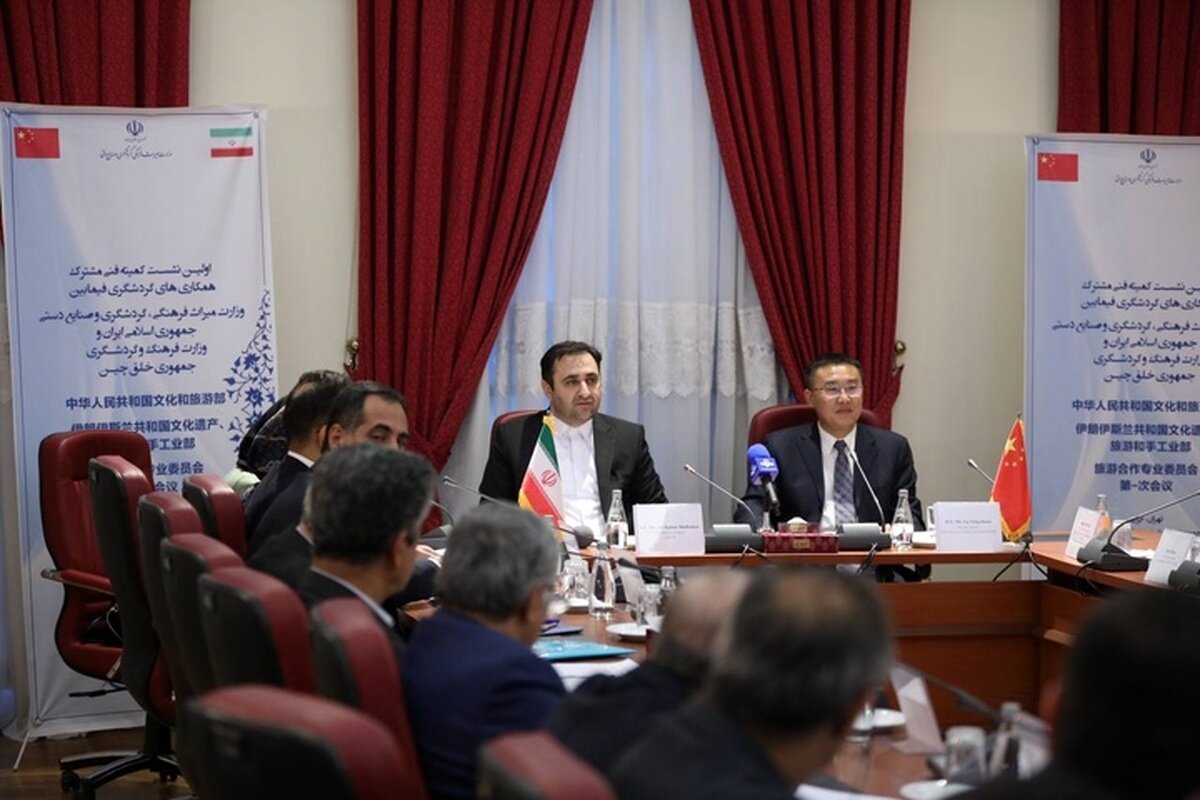Chinese visits to Iran on the rise, government official says

TEHRAN – Chinese arrivals in Iran have been soaring at a faster pace even when compared to pre-pandemic levels, the deputy tourism minister said.
“The demand for visiting Iran has been soaring among Chinese nationals,” Ali-Asghar Shalbafian said on Sunday.
He made the remarks in a meeting with his Chinese counterpart Lu Ying Chuang held in Tehran’s Sa’dabad historical complex.
Shalbafian said some 50,000 travelers from China visited the Islamic Republic during the first seven months of the year (started on March 21).
“Iran hosted many Chinese tourists in the past few months, and in particular, after the end of the Coronavirus,” Shalbafian added.
In a comparison with the same period in the year 1398 (started in Mar. 2019), the official said: “Chinese arrivals in the current year have been higher than that in 98, though the number of flights is almost halved.”
One of the reasons behind the rise is the Chinese government’s initiative to put Iran on its list of top travel destinations, Shalbafian said.“Certainly, the inclusion of Iran as a top tourist destination by the Chinese government in the country's tourism programs has been effective in increasing these demands, therefore I would like to thank China’s Ministry of Culture and Tourism and its Embassy in Tehran.”
The Chinese deputy tourism minister, for his part, said Iran and China, as heirs of two ancient civilizations, have rich capacities and can cooperate in wider fields.
Currently, tourism is developing between Iran and China to gain pre-pandemic levels, he noted.
“Iran’s joining the Shanghai Cooperation Organization and the BRICS summit has provided many opportunities for bilateral cooperation between Iran and China,” Lu Ying stated.
Over the past couple of years, Iran has made efforts to become a main destination for Chinese nationals. “We should pay attention to the Chinese market in a more pragmatic approach,” Ali-Asghar Shalbafian said earlier this year.
“So far, steps have been taken to examine the Chinese tourism market, but today the (essential) need is to implement executive measures based on [our] fault detection and macro planning,” the official explained.
For instance, the Islamic Republic in 2019 waived the visa requirement for Chinese nationals willing to visit the country. The decision was made to attract more foreign tourists to the country; however, it was a unilateral measure, because Iranian tourists visiting China still need visas.
Tehran’s ex-ambassador to Beijing said Iran was seeking to become a tourist destination for millions of potential travelers from China as the two countries are working on a 25-year comprehensive cooperation plan that includes boosting relations in the field of tourism. Speaking in the TV program, Mehdi Safari reminded some 200 million Chinese tourists to visit different countries annually, adding “According to this agreement Iran will become one of the tourist destinations for Chinese travelers so that Iran can attract one to two million Chinese tourists to the country.”
Insignificant numbers of Chinese restaurants, Chinese-language guides, or even unfitting lodging facilities have been among the main reasons cited by experts why Chinese arrivals in Iran fall short of expectations.
AFM
